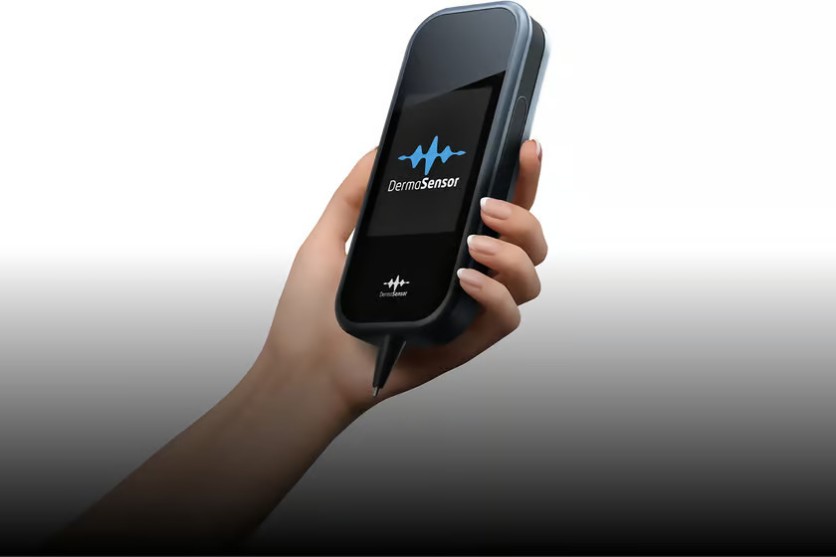The US Food and Drug Administration (FDA) has cleared the first AI-powered handheld medical device to assist physicians in detecting common skin cancers.
This technology aims to offer a more accurate way of detecting all three common skin cancers, namely basal cell carcinoma, squamous cell carcinoma, and melanoma.

Real-Time, Non-Invasive Detector of Skin Cancers
DermaSensor, the innovative company behind the device, recently announced the FDA clearance for its real-time, non-invasive skin cancer evaluation system.
This milestone provides 300,000 primary care physicians in the US with a tool for quantitative, point-of-care testing for all skin cancer types to improve skin cancer identification in primary care and accelerate patient access to essential treatment.
The significance of this achievement is emphasized by the fact that one in five Americans is expected to experience some form of skin cancer by the age of 70.
Treating skin cancers in the US costs an estimated $8.1 billion annually, with around 5.5 million new cases each year. However, early detection can cure 99 percent of skin cancers, including potentially fatal melanoma, according to DermaSensor.
With DermaSensor's AI-powered spectroscopy technology, physicians are anticipated to noninvasively evaluate suspicious skin lesions for cancer. The wireless handheld device is expected to deliver an unbiased result using an FDA-cleared algorithm.
FDA Study
Findings from an FDA study with over 1,000 patients led by the Mayo Clinic across 22 study centers highlighted the device's impressive performance.
The study demonstrated a sensitivity of 96 percent across all 224 skin cancers, while a negative result indicated a 97 percent likelihood of the lesion being benign for all skin cancers.
In a companion clinical utility study involving 108 physicians, the DermaSensor device effectively halved missed skin cancer cases, enhancing physicians' accuracy and confidence in evaluating cancerous lesions.
Cody Simmons, co-founder and Chief Executive Officer of DermaSensor, commented on the transformative impact of artificial intelligence in healthcare, especially when coupled with advanced technologies like spectroscopy and genetic sequencing.
Simmons expressed pride in the first FDA-cleared device, which offers primary care physicians an automated tool for evaluating suspicious lesions.
Read Also : Moderna, Merck's Groundbreaking Melanoma Treatment Shows Promise in Combination Therapy Study
Medical Milestone
The advantages of this innovation reach beyond primary care physicians to dermatologists, fostering enhanced collaboration between the two fields.
DermaSensor is positioned to improve coordination between primary care and dermatology, streamlining prioritized referrals and increasing the number of referrals for patients with skin cancer.
"Achieving this medical milestone is a testament to the 12 years and tens of millions of dollars our company has invested in research and development to bring this powerful technology to market," said Dr. Maurice Ferre, co-founder and chairman of DermaSensor.
"We are incredibly grateful to the FDA for their collaboration and dedication to this area starting with our first FDA pre-submission meeting in 2016. Having begun patient enrollment in our FDA pivotal study in mid-2020, we are now ecstatic to have clearance of our FDA-Breakthrough Designated De Novo submission," he added.
Related Article : World's Smallest Skin Cancer Now a Guinness World Record! Almost Invisible to the Naked Eye

ⓒ 2026 TECHTIMES.com All rights reserved. Do not reproduce without permission.




